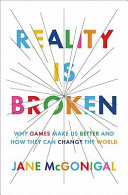Four kinds of intrinsic rewards
First and foremost, we crave satisfying work, every single day. The exact nature of this “satisfying work” is different from person to person, but for everyone it means being immersed in clearly defined, demanding activities that allow us to see the direct impact of our efforts.
Second, we crave the experience, or at least the hope, of being successful. We want to feel powerful in our own lives and show off to others what we’re good at. We want to be optimistic about our own chances for success, to aspire to something, and to feel like we’re getting better over time.
Third, we crave social connection. Humans are extremely social creatures, and even the most introverted among us derive a large percentage of our happiness from spending time with the people we care about. We want to share experiences and build bonds, and we most often accomplish that by doing things that matter together.
Fourth, and finally, we crave meaning, or the chance to be a part of something larger than ourselves. We want to feel curiosity, awe, and wonder about things that unfold on epic scales. And most importantly, we want to belong to and contribute to something that has lasting significance beyond our own individual lives.
[...]
Many of the studies whose results I’ve based this set of intrinsic rewards on are reviewed in the following books: Martin Seligman’s Authentic Happiness and Learned Optimism; Seligman and Christopher Peterson’s Character Strengths and Virtues; Sonja Lyubomirsky’s The How of Happiness; Tal Ben-Shahar’s Happier; Jean M. Twenge’s Generation Me; Mihály Csíkszentmihályi’s Beyond Boredom and Anxiety; and Eric Weiner’s The Geography of Bliss.
Notes:
Folksonomies: happiness
Taxonomies:
/food and drink/food/candy and sweets (0.652425)
/law, govt and politics/politics/lobbying (0.499808)
/business and industrial (0.495767)
Keywords:
intrinsic rewards (0.949828 (positive:0.639767)), Jean M. Twenge (0.768163 (neutral:0.000000)), satisfying work (0.602125 (neutral:0.000000)), exact nature (0.563632 (positive:0.288016)), Martin Seligman (0.558282 (positive:0.743134)), Authentic Happiness (0.552458 (positive:0.743134)), direct impact (0.542091 (neutral:0.000000)), Learned Optimism (0.523317 (positive:0.743134)), social connection (0.519942 (positive:0.375181)), Sonja Lyubomirsky (0.517485 (positive:0.571001)), Ben-Shahar’s Happier (0.513945 (positive:0.414664)), Eric Weiner (0.507023 (positive:0.379078)), Character Strengths (0.506283 (positive:0.523394)), epic scales (0.498217 (positive:0.257621)), following books (0.495609 (positive:0.723417)), Mihály Csíkszentmihályi (0.492044 (negative:-0.383693)), individual lives (0.487065 (neutral:0.000000)), person (0.342958 (neutral:0.000000)), time (0.315695 (positive:0.666809)), things (0.310511 (positive:0.413767)), chances (0.275587 (positive:0.318828)), curiosity (0.273745 (negative:-0.337869)), Boredom (0.270229 (negative:-0.383693)), Virtues (0.268150 (positive:0.523394)), Tal (0.266589 (neutral:0.000000)), percentage (0.266160 (positive:0.746155)), kinds (0.262151 (positive:0.556118)), experience (0.260514 (positive:0.361312)), hope (0.260390 (neutral:0.000000)), activities (0.260027 (neutral:0.000000))
Entities:
Martin Seligman:Person (0.913045 (positive:0.477729)), Jean M. Twenge:Person (0.639612 (neutral:0.000000)), Sonja Lyubomirsky:Person (0.628824 (positive:0.571001)), Eric Weiner:Person (0.613598 (positive:0.379078)), Mihály Csíkszentmihályi:Person (0.588418 (negative:-0.383693)), Anxiety:HealthCondition (0.538189 (neutral:0.000000)), Peterson:Person (0.534077 (positive:0.523394)), Tal:Person (0.527168 (neutral:0.000000)), The Geography of Bliss:PrintMedia (0.476210 (positive:0.379078)), Christopher:Person (0.463357 (positive:0.212324))
Concepts:
Positive psychology (0.966448): dbpedia | freebase | yago
Motivation (0.649671): dbpedia | freebase
Eric Weiner (0.516692): website | dbpedia | freebase | yago
The Geography of Bliss (0.401973): dbpedia | freebase
Optimism (0.384312): dbpedia | freebase | opencyc





